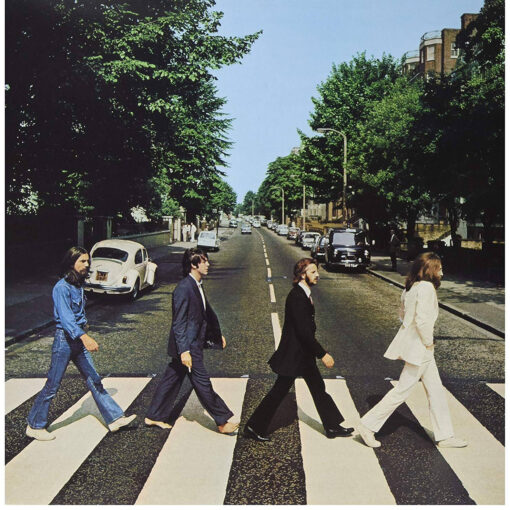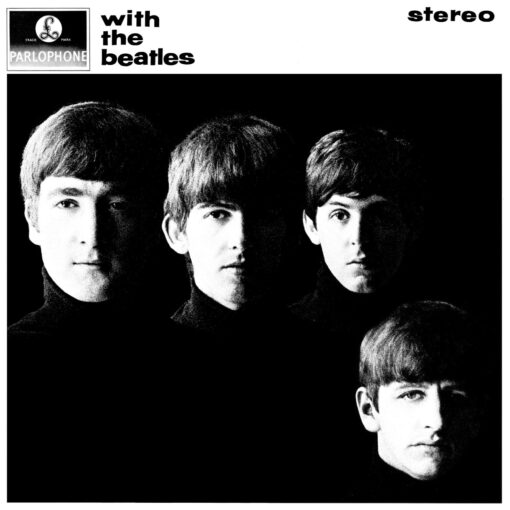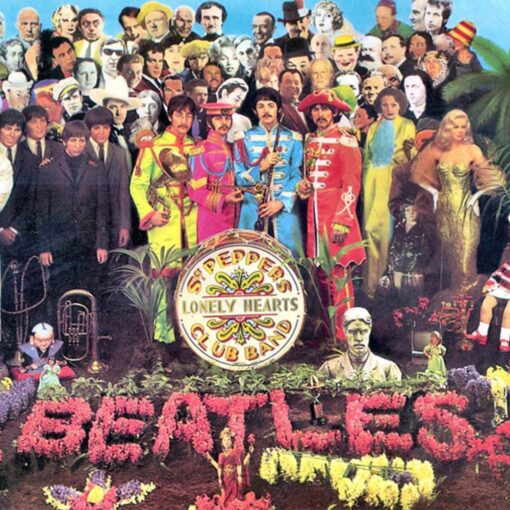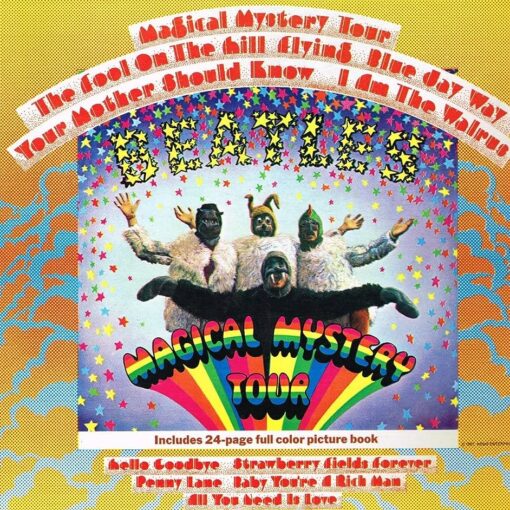- Published on 1969
- Author: Lennon/McCartney
- Track 16 on “Abbey Road“
JOHN 1980: “That’s Paul again, the unfinished song, right? Just a piece at the end. He had a line in it, (sings) ‘And in the end the love you take is equal to the love you make,’ which is a very cosmic, philosophical line– which again proves that if he wants to, he can think.”
PAUL 1988: “Ringo would never do drum solos. He hated drummers who did lengthy drum solos. We all did. And when he joined the Beatles we said, ‘Ah, what about drum solos then?’ and he said, ‘I hate ’em!’ We said, ‘Great! We love you!’ And so he would never do them. But because of this medley I said, ‘Well, a token solo?’ and he really dug his heels in and didn’t want to do it. But after a little bit of gentle persuasion I said, ‘…it wouldn’t be Buddy Rich gone mad,’ because I think that’s what he didn’t want to do. … anyway we came to this compromise, it was a kind of a solo. I don’t think he’s done one since.”
PAUL 1994: “We were looking for the end to an album, and ‘In the end the love you take is equal to the love you make’ just came into my head. I just recognized that would be a good end to an album. And it’s a good little thing to say– now and for all time, I think. I can’t think of anything much better as a philosophy, because all you need IS love. It still is what you need. There aint nothin’ better. So, you know, I’m very proud to be in the band that did that song, and that thought those thoughts, and encouraged other people to think them to help them get through little problems here and there. So uhh… We done good!!”
About “The End”
“The End” stands as the concluding piece of the medley that dominates the latter half of Abbey Road. The song bears a unique distinction as it features Ringo Starr’s only recorded drum solo with the Beatles.
McCartney expressed his intention for the medley to culminate in a profound couplet, drawing inspiration from the Bard. In a candid interview with Playboy in 1980, John Lennon acknowledged McCartney’s authorship, noting the cosmic and philosophical essence of the line, ‘And in the end, the love you take, is equal to the love you make.’
Recording commenced on July 23, 1969, with the Beatles initially laying down a one-minute, thirty-second master take, later extended through overdubs. Initially dubbed “Ending,” the first vocals were added on August 5, with additional vocals and guitar overdubs on August 7. Bass and drums were incorporated on August 8, coinciding with the iconic Abbey Road cover photoshoot. Orchestral embellishments were introduced on August 15, culminating with the closing piano and accompanying vocal on August 18.
“The End” showcases solos from all four Beatles, including Ringo Starr’s distinctive drum solo. McCartney, George Harrison, and Lennon each take turns in a sequence of three, two-bar guitar solos, with the idea for this instrumental segment originating from Harrison. These solos commence around 53 seconds into the song. The dynamic interplay reflects a sense of camaraderie, akin to ‘gunslingers,’ as described by Geoff Emerick, the Beatles’ recording engineer.
The song culminates in a spiritually evocative cadence, shifting from A major to C, introducing a fresh musical key. The final bars gracefully reconcile various musical genres.
“The End” has received acclaim for its adept execution of improvised jamming characteristic of late ’60s rock. It is hailed for its precision and economic musicality, marking it as a fitting conclusion to the world of Beatle daydreams. John Mendelsohn of Rolling Stone aptly summarized it as “a perfect epitaph for our visit to the world of Beatle daydreams: ‘The love you take is equal to the love you make.'”
Meaning of “The End”
“The End,” encapsulates a sense of closure, resolution, and culmination. Its lyrics, while concise, convey a profound message about love and reciprocity.
The central message of the song revolves around the idea that the love one receives in life is directly proportional to the love one gives. This concept is encapsulated in the famous line, “And in the end, the love you take is equal to the love you make.”
In essence, “The End” offers a reflection on the cyclical nature of love and the importance of giving and receiving in balanced measure. It implies that the love and kindness one extends to others ultimately return to enrich one’s own life. This sentiment is both poignant and optimistic, suggesting a hopeful outlook on the human capacity for love and connection.
Furthermore, the title “The End” and its placement as the final track on the “Abbey Road” album also serve to signify the conclusion of an era. As one of the last songs recorded collectively by all four Beatles, it carries a sense of closure for the band and their prolific musical journey together.
Overall, “The End” stands as a powerful reflection on the universal themes of love, reciprocity, and the cyclical nature of human connections. Its enduring message continues to resonate with listeners across generations.
Personnel
- Paul McCartney – lead and backing vocals, bass guitar, piano, guitar solo (Epiphone Casino)
- John Lennon – harmony vocals, rhythm guitar, guitar solo (Epiphone Casino)
- George Harrison – harmony vocals, rhythm and lead guitar, guitar solo (Gibson Les Paul)
- Ringo Starr – backing vocals, drums, tambourine
- George Martin – orchestration
- uncredited – 12 violins, four violas, one double-bass, four horns, three trumpets, one trombone, one bass trombone



